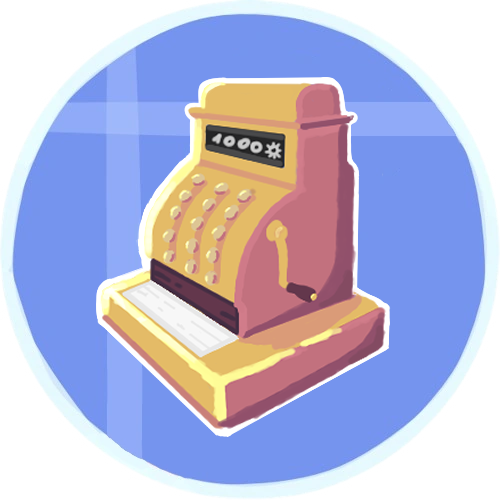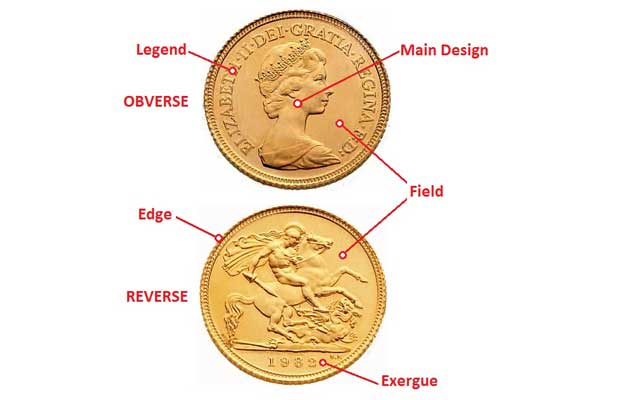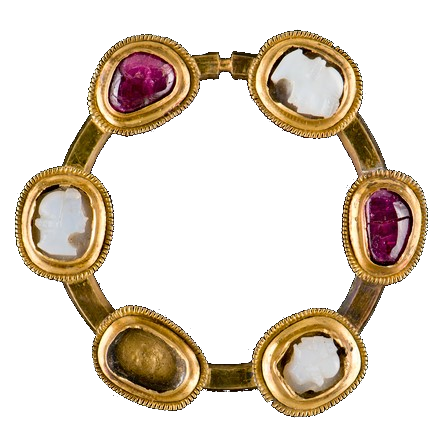Excellent Facts For Picking Banknote Grading And Currency
Excellent Facts For Picking Banknote Grading And Currency
Blog Article
What Can I Do With An Numismatics Database To Study Global And Regional Association?
A methodical approach is offered to conduct this study. Here's a structured approach to conduct this research: Database Selection: Choose databases that are specialized in numismatic associations, such as the websites of major organizations like the American Numismatic Association (ANA), the International Numismatic Council (INC) or regional associations such as the Numismatic Association of Australia (NAA). Academic databases and repositories, such as JSTOR provide access to proceedings of conferences and scholarly articles.
Define Research Focus: Specify your research objectives. You may be interested in the past of numismatic societies, their activities, regional collaborations and conferences or particular numismatic topics that these organizations discuss. Clarify your goals to guide your investigation.
Search Strategy: Keywords such as"numismatic organisations, "global numismatics" or "regional numismatics" are beneficial. You can also include association names as well as geographic regions if you'd like. You can use advanced search features to filter results based on date, document type (such as conference papers or association newsletters) as well as geographical area.
Access data on the numismatic associations of both regions and globally which include their mission, history, and membership. Also, access information on their publications and activities. Details about past and planned research, workshops, and conferences are available. Find databases that contain details on the association's leaders, members and contact details.
Analyze data to comprehend the its role and the impact. Find out how these associations contribute to the advancement of numismatic knowledge, foster international collaborations and propagate research through conferences and publications.
Cross-Reference: Verify the accuracy of your data by comparing it with other databases and sources. Examine the activities and initiatives of various organizations to gain an overview of local and global developments in numismatics.
Documentation. Note your findings from research, citing all sources and mentioning the methods you used. Keep track of details on the databases used, search terms used, as well as the importance of each source to your research needs.
Numismatic organizations are always changing. Conferences, publications, and collaborative projects are regularly launched. Updates to the websites of the associations, newsletters research databases, and association websites will keep you updated with the most recent developments in numismatics worldwide.
Following these steps will allow you to use databases effectively to study numismatics as it is related to both regional and global organisations. This approach allows a comprehensive investigation into the regional and global numismatics field's structure and academic activities as well as collaboration efforts. See the most popular copyright for site examples including banknote news, banknote marketplace, mint, rare coins, banknote authenticity, banknote dealer, historical currency, legal tender, design, banknote printing and more.
What Can I Do With Databases To Study Numismatics Regarding Refineries?
For research on numismatics in relation to refineries, it is crucial to choose databases that focus on precious metals processing minting techniques, refineries, and the historical and technological aspects of these facilities. This is a systematic method to conduct this study. Selecting a Database: Select databases that are specialized in minting, precious metals and numismatics. Databases from major refineries, such as Johnson Matthey or Heraeus; or mints run by government, such as the United States Mint, the Royal Canadian Mint, are examples.
Define Research Focus: Specify your research objectives. Are you interested in learning about the development and history of specific refineries? Are you interested in technological advancements, the production of gold and coins or quality standards in the processing of precious metals? Make sure you know what you are looking for in order to focus your research.
Search Strategy: Use words like "precious metals refineries," "minting processes," "bullion production," and include specific refinery names, geographic regions or periods of time when applicable. You can use advanced search features to filter results by date, document type (such as production reports, technical reports figures) and refining techniques.
Data collection: Access information about refineries and their past like the date of their founding as well as the type of precious metals they use (gold or silver, for example) and any other historical advancements or innovations.
Analyze: Analyze to understand refineries' roles in the field of numismatics. Examine the ways in which refineries source base and precious metals for coin and gold production, ensure quality control of minting processes and contribute to standardizing coinage materials. Examine the methods and technologies used by different mints and refineries.
Cross-References: Verify what you've discovered by cross-referencing data from different databases and sources. This allows you to perform accurate research and gain an accurate image of the contributions of refineries to numismatics.
Documentation. Note your findings in a systematic manner by citing the sources you used and mentioning the methodologies you have employed. Keep track of information such as the databases that you have accessed and the search terms you used and their connection to your research questions.
Stay up to date Technology and standards for refinery change over time. Stay current by reading the latest industry reports, mint publications and refinery publications to find out about the most recent advancements in refining as well as Numismatics.
Databases can be used to study refineries and numismatics by following these easy steps. This approach allows for an in-depth study of the latest technological advancements, quality control measures, and contributions to history made by refineries in the production of bullion and coins around the world. Have a look at the best my review here about banknote production for more advice including currency exchange, peso, coin mintmark, rupee, uncirculated, banknote marketplace, coin errors, banknote display, collector, banknote authenticity and more.
How Can I Utilize The Numismatics Database To Locate Legal Experts To Help Me In My Research?
For conducting such research, here's a step-by-step guide: Database Selection Make sure you select databases that are focused on legal research, coinage and currency regulations, legal precedents on cases involving numismatics, as well as academic journals on legal issues. Here's a systematic approach to conduct research on this subject: Database Selection: Choose databases that focus on legal research, numismatic law, court cases that involve numismatic issues as well as academic journals about the legal aspect of the numismatics. Examples include legal research platforms like Westlaw or LexisNexis as well as numismatic law journal as well as publications from the numismatic societies.
Define Research Focus: Specify your research objectives. Do you want to know more about the legal rules that govern coinage currencies, and numismatic disputes Are you seeking rules on the production of coins circulation, circulation, or legal interpretations regarding the authenticity of numismatics and ownership? Find out the key areas of your interest to narrow your search.
Search Strategy: Add keywords like "numismatic law," or "legal aspects of coinage" or "numismatic conflicts," and include specific legal concepts such as authenticity, ownership and counterfeiting, when applicable. Advanced search options let users to filter their search by date, region (national or worldwide) as well as questions of law that relate to numismatics.
Data Collection: Search for legal precedents (case law), legislative text (legislation) and research publications on the subject of numismatics. Data collection: Collect data like legal analyses of case summaries, cases and legal interpretations and historical perspectives, regarding legal issues related to numismatics.
Examine the data and comprehend the challenges faced by numismatics. Learn how legal frameworks influence numismatic trading collections management, collection processes authenticating procedures, as well as the international trade of numismatic objects. Compare legal interpretations from different jurisdictions.
Cross-Referencing. Check what you've identified by cross-referencing data from different databases journals, courts files, and academic papers. This method ensures the accuracy of your research and complete, providing complete information about the legal context in Numismatics.
Documentation - Record your findings in a structured manner including sources used as well as the methods you've used. Keep track of details on the databases used, search terms used, and the importance of each source to your research needs.
Stay Up-to-date: Numismatic legislation and legal interpretations are constantly evolving with the changing of laws, court decisions and other developments. Stay abreast of legal developments by keeping track of updates on databases of legal information, publications on numismatics law and the numismatic societies.
You can use databases to search for numismatics research and experts in the field of law by following these steps. This approach allows for an in-depth study of the legal frameworks, challenges and scholarly interpretations which are connected to the field of numismatics. Take a look at the recommended agree with about krona for blog advice including coin design, coin certification, banknote history, currency dealer, coin design, gold, coin production, banknote marketplace, banknote identification, coin errors and more.
How Do I Search For Numismatics Journals And Publications By Using An Online Database Of Numismatics?
For numismatics research in journals and publications, databases that specialize on numismatic publications and articles, historical journals and academic publications are the most effective. Here's how to structure such an investigation: Database Select: Select databases that focus on numismatic publications and journals. Online databases like JSTOR as well as Google Scholar are good examples. Additionally, you can search for journals that are numismatic, like those produced by the American Numismatic Society, or library catalogs with collection of numismatics.
Define Research Focus: Specify your research objectives. You may be interested in the history of numismatics, certain kinds of coins or times. Determine your goals to help you narrow your search.
Search Strategy Use keywords such "numismatics," “numismatic publications," "numismatic periodicals," and include topics or coin types that you find relevant (such for medieval coins or coins from the past) in the event that they are relevant. You can filter results with advanced search options. This can be done by filtering results according to publication type and date.
Data Collection: Access details about numismatic journals, publications, and magazines. Find out the article's title the author's name, abstract, publication date, and bibliographic details. Explore databases that offer full-text and digital archives for historic numismatic publications.
Analysis: Analyze the data in order to discover the scholarly contributions and research developments in the field of numismatics. Analyze the research methods used in numismatics as well as the interpretations for coinage iconography and symbols, numismatic classification standards, as well as the changes in numismatic research.
Cross-Referencing. Verify that your findings are accurate and complete by cross-referencing data across multiple databases. This will ensure accuracy and completeness in your research, providing insights into the depth and breadth of numismatic literature.
Documentation: Document your findings in a systematic manner, citing sources and noting the methodologies you employed. Note the database's names or search terms, as well as the relevance of each source to your research.
Numismatic research and publications are constantly evolving as new discoveries are made and new interpretations are given. Follow the latest updates from numismatic publications, academic databases, and society for numismatics to keep up-to-date on the most recent research and publications on numismatics.
These steps will help you make use of databases to study the numismatics of publications and journals. This technique allows for an extensive examination of the scholarly contribution as well as the research methodology and the historical perspective offered by numismatic journals. Take a look at the most popular the advantage for commemorative coins for more info including coin holder, banknote show, collection, coin expo, coin die, banknote certification, rupee, banknote marketplace, legal tender, collection and more.
How Can I Research Numismatics In Relation To Industry Consultants Using Databases?
Here's a systematic approach to conducting research like this: Database Selection: Select databases that focus on consulting firms, industry reports and publications that are relevant to the field of numismatics. Here's a method to conduct such research:Database Choice: Select databases that specialize in consulting firms, industry reports and publications relevant to the field of numismatics. They include directories for businesses and websites for consulting firms. Additionally, they include publications of numismatic societies.
Define Research Focus: Specify your research objectives. Are you interested in understanding the services of consulting offered to numismatic companies and market analysis reports on numismatics, expertise of individual consultants in specific industries, or even patterns identified by industry experts? Find out more about the services that can aid you.
Search Methodology: Use keywords such as "numismatic industry consultant", "numismatic consultancy firms", or "market analysis of coins" to find relevant results. If applicable you could add geographical regions and specific areas of knowledge. Advanced search options allow users to filter their search by date, specialist area of the consultant and the type of consulting service provided.
Data Collection: Get information about consulting firms which specialize in numismatics and industry consultants who provide services to numismatic companies. Data Collection: Get details on consulting firms, their areas of expertise (market analysis and collection management as well as authentication) and testimonials from customers and written reports by industry consultants.
Analyze and appreciate the role and contribution of industry consultants to the field of numismatics. Examine the expertise of consultants and methods of providing guidance on numismatic investments and the market's trends. Also, assess the strategies they employ to manage collections and compliance with regulations.
Cross-Reference: Check the validity of your study by cross-referencing information from multiple databases, directories of consulting firms, books and reports issued by numismatic societies, and industry reports. This will ensure accuracy and completeness of your research and provides an extensive view of the consulting landscape within numismatics.
Documentation. Document your research findings by citing sources, and recording methods. Note the details of the databases you have accessed, search terms used, and the importance of each source to your research needs.
Keep up to date: Market trends and consulting services in numismatics are changing with changes in economic conditions and regulations. Keep track of the latest updates on consulting firms' websites, industry reports and numismatic society publications for the most recent insights and opinions from experts in the industry.
By following these steps, you will be able to you to explore numismatics and industry consultants. This technique allows for a thorough investigation of market analysis as well as strategic advice provided by consultants in the numismatic field. They are able to provide valuable insights into business operations as well as investment strategies and market dynamics. Follow the top https://zlatemince.cz/ for blog advice including coin album, mint, collector, copyright, circulated, krona, banknote album, banknote identification, platinum, dirham and more.